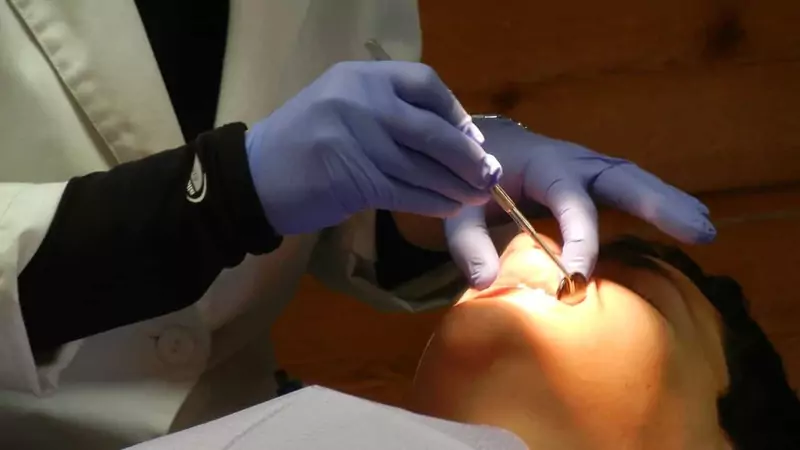Wisdom Teeth Problems
What problems do wisdom teeth cause? Let’s examine some wisdom teeth problems under the following headings;
Dental Caries
During the eruption phase of wisdom teeth, food residues and bacteria accumulate in the tooth socket and cause dental caries. Infection and abscess formation can be seen in the teeth where caries occur and in the teeth adjacent to these teeth. These formations can make the person feel very severe pain. However, there are ADA-approved pain relievers (eg, KANK-A Mouth Pain Liquid and Benzodent Dental Pain Relieving Cream) that are safe and have shown efficacy in helping to temporarily relieve pain or discomfort.
Pericoronitis
Pericoronitis (gingival abscess) is a kind of gum infection. It occurs in partially erupted teeth when the existing infection in that area spreads to the soft tissue. Pericoronitis causes bad breath, pain, and swelling. Sometimes, it prevents the person from opening and closing their mouth completely, causing a condition called trismus.
If pericoronitis remains untreated, the infection spreads through the lymph to the cheek and neck area. Therefore, in these cases, it is important to consult a dentist as soon as possible. Pericoronitis can be easily prevented if treated early.
Pressure Pain
During the eruption of wisdom teeth, pressure adjacent teeth. This pressure causes a pain called “pressure pain” in the jaw. This pressure on the adjacent teeth during the eruption of wisdom teeth can cause abrasions in these teeth.
Crooked Teeth
In particular, young people receive orthodontic treatment to treat crooked teeth and other disorders in their teeth. Since the pressure during the eruption of the wisdom teeth exerts a force on the neighboring teeth, this force pushes the neighboring teeth. As a result of this push, crooked teeth, and other tooth disorders increase.
Cysts and Tumors
During the eruption of wisdom teeth, a cyst may form in that area because the sheath around the tooth is not resorbed. These cysts enlarge and cause abrasions on the jawbone. Cysts also weaken the jawbone by creating large spaces in the bone. As a result, fractures can occur in weakened jawbones. There is also the possibility that cysts may turn into tumors, although this is rare.
References
American Dental Association: “Wisdom Teeth”
Cleveland Clinic: “Do Your Wisdom Teeth Really Have to Come Out?”
Mayo Clinic: Diseases and Conditions, “Impacted wisdom teeth”
Oral Health Foundation: “Wisdom teeth”

